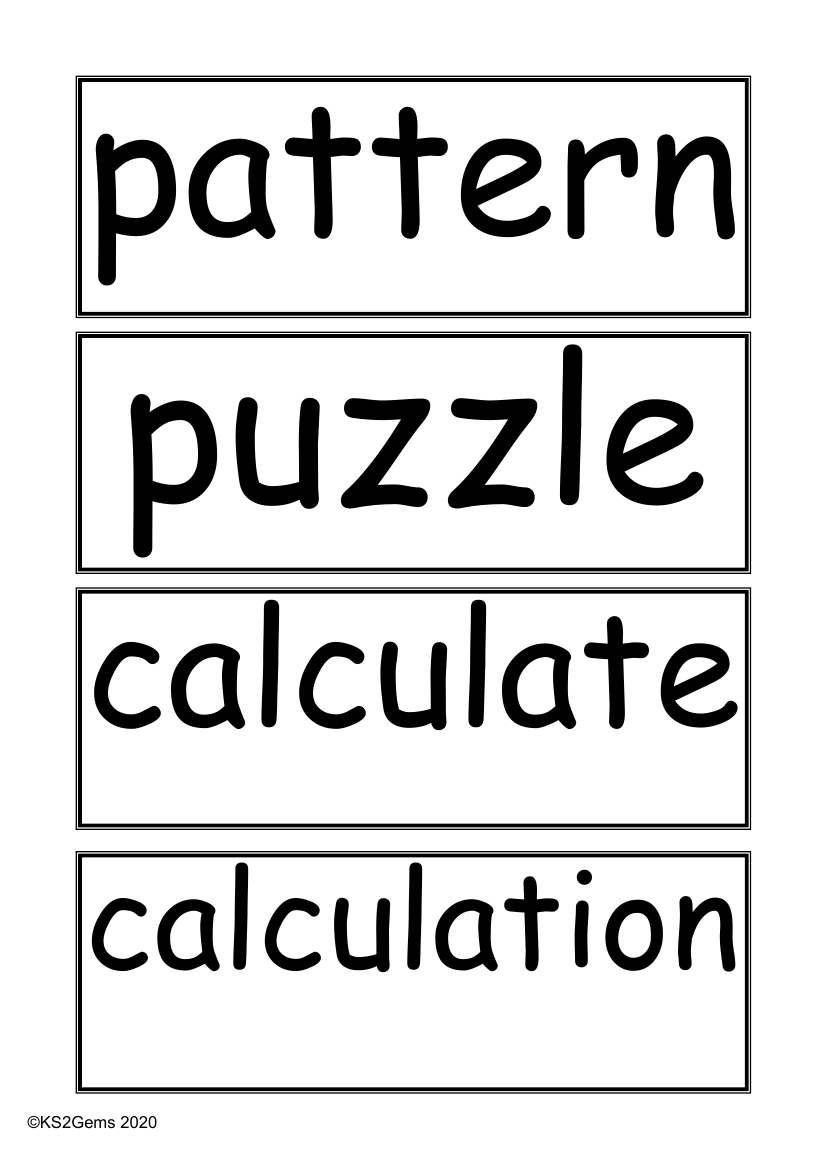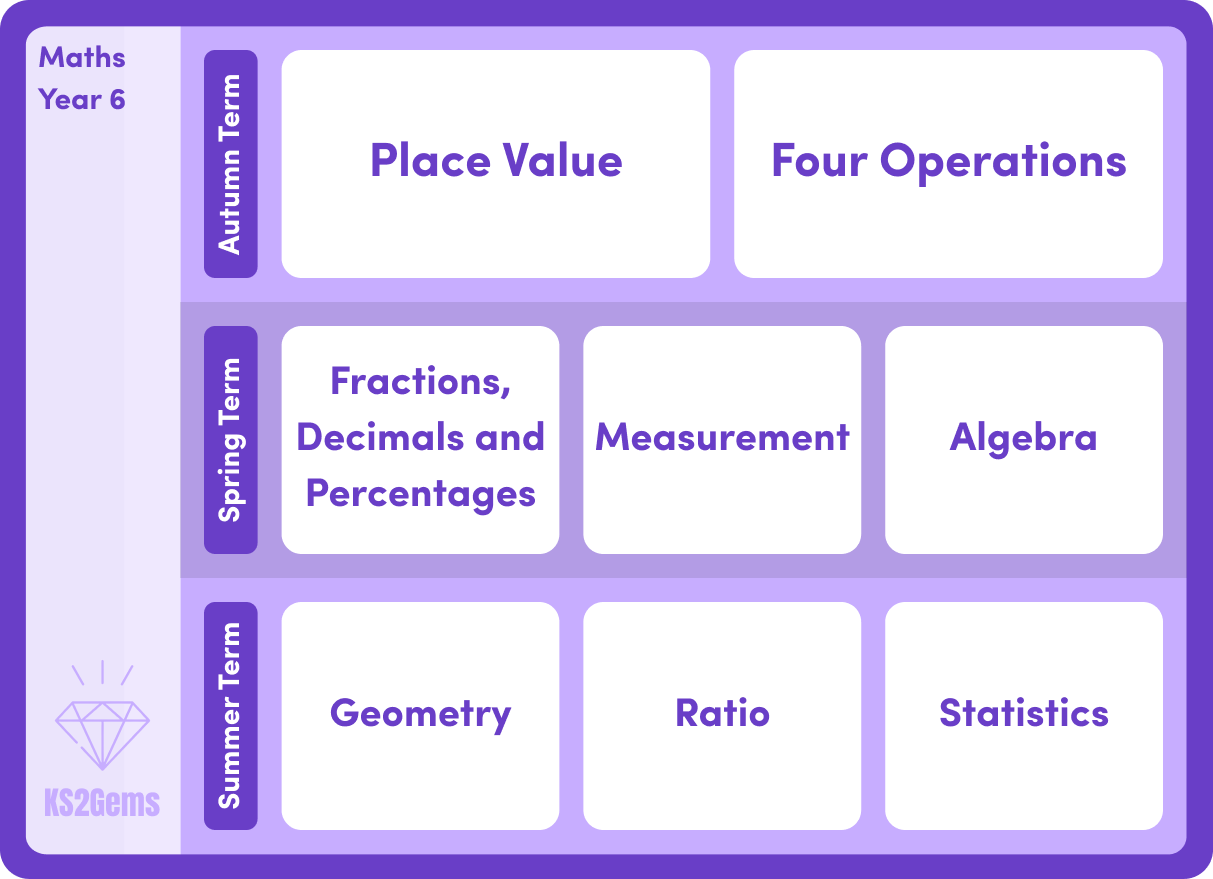Vocabulary - Problem-solving

Maths Resource Description
Developing a robust vocabulary is essential for problem-solving in mathematics, particularly at the Key Stage 2 level. Students are encouraged to recognise and use terms such as 'pattern', which helps them identify regularities, and 'puzzle', which refers to a problem that requires thought and ingenuity to solve. The ability to 'calculate' and perform 'calculations' is fundamental, allowing pupils to work out answers using numerical methods. These skills are further enhanced by understanding concepts like 'mental calculation', which involves solving problems in one's head without the aid of written or physical tools.
Beyond the basic calculations, students learn about different 'methods' and 'jottings', which are informal notes or workings out that aid in reaching an 'answer'. They are also taught to recognise when an answer is 'right' or 'correct', and equally, when it is 'wrong', prompting the question, 'What could we try next?' as a way to encourage perseverance and alternative strategies. To explain their reasoning, students might be asked, 'How did you work it out?', prompting them to articulate their process, which could involve 'number sentences', 'signs', 'operations', and the use of 'symbols' in equations. Developing a 'strategy' or an 'idea' to tackle a problem is key, and students are introduced to the concept of 'conjecture', which is an educated guess or hypothesis formed as a starting point for further investigation or problem-solving. These terms form a part of the essential language that students use to navigate the mathematical challenges they encounter.

